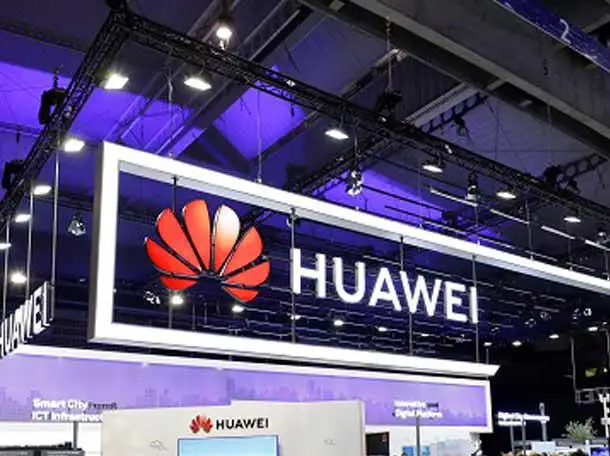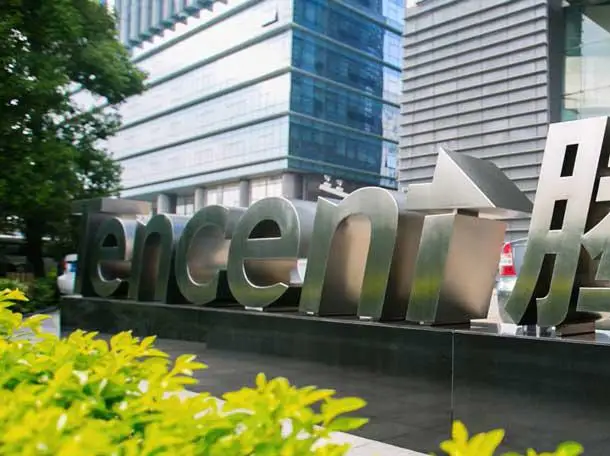AWS, Microsoft, Google Lead Gartner’s Cloud Services Magic Quadrant
Gartner ranks the world’s top eight cloud companies in its new Magic Quadrant for Strategic Cloud Platform Services report which includes Microsoft, IBM, Oracle, Google Cloud and AWS.

Amazon Web Services, Microsoft Azure, Oracle and Google Cloud rank as the world leaders in Gartner’s new Magic Quadrant for Strategic Cloud Platform Services report.
“These providers are in a race to colonize the world’s enterprise IT workloads and investment budgets, in a bid to become the primary strategic suppliers of IT infrastructure and platform services in the industry,” said Gartner in its report.
Alongside AWS, Google and Microsoft, the five other cloud companies that made Gartner’s Magic Quadrant for Strategic Cloud Platform Services report include IBM and Asia’s three largest cloud providers: Alibaba Cloud, Tencent Cloud and Huawei Cloud.
These eight companies control more than 97 percent of the total infrastructure and cloud platform services market, according to Gartner.
“Although customers may wish to avoid vendor lock-in by adopting a multi-provider cloud strategy, it is currently impractical for most IT organizations to fully master and leverage more than one or two providers. This makes the selection of a cloud provider highly strategic,” Gartner said. “For better or worse, an enterprise will be heavily reliant on its chosen provider for many years to come.”
Gartner’s Magic Quadrant For Strategic Cloud Platform Services
In Gartner’s report, the IT research firm provides an in-depth look at each cloud provider’s strength, weakness and market standing.
“The cloud infrastructure and platform services market has been consolidating around these providers for several years,” Gartner said. “Each provider has a unique approach to winning in the market, with distinct strengths and weaknesses in its services, programs and partner ecosystem.”
To make Gartner’s report, cloud services companies must provide Infrastructure-as-a-service (IaaS) and Platform as-a-service (PaaS) cloud services that support mission critical and large-scale production workloads including services around storage, networking, computing, automation and application management on a global scale, to name a few Gartner’s requirements. Companies must also provide programs and resources to assist customers in digitally transforming to a cloud operating model for delivery of IT services.
Gartner’s Magic Quadrant for Strategic Cloud Platform Services ranks vendors on their ability to execute and completeness of vision and places them in four categories: Niche Players (low on vision and execution), Visionaries (good vision but low execution), Challengers (good execution but low vision) and Leaders (excelling in both vision and execution). In this particular Gartner Magic Quadrant, there are no companies listed as Challengers or Visionaries.
From AWS and Microsoft to Oracle and Huawei, CRN breaks down the eight cloud companies that made Gartner’s Magic Quadrant for Strategic Cloud Platform Services report.

Leader: Amazon Web Services (AWS)
The global leader in cloud computing ranks No. 1 for execution and No. 2 for vision on Gartner’s Magic Quadrant for Strategic Cloud Platform Services.
While maintaining a leading global IaaS and PaaS market share of over 40%, Gartner said AWS has continued to expand in a consistently profitable way. Key growth drivers for the Seattle-based company include database and analytics services, as well as AI and machine learning.
Strength: AWS has mature systems integrator and MSP partners, with AWS partner programs maintaining a strong focus on partner technical enablement. Gartner said the AWS Marketplace is the largest and most full-featured digital marketplace for third-party cloud software in the industry.
Weakness: Of the major cloud companies, Gartner said AWS is notable for its lack of tools and services that directly address multi-cloud use cases. Gartner survey results show that 76 percent of enterprise IaaS and PaaS customers today rely on more than one public cloud provider.

Leader: Microsoft
The world’s largest software company ranks No. 1 for vision on Gartner’s Magic Quadrant for Strategic Cloud Platform Services and No. 2 for execution.
Microsoft Azure is strong in all cloud use cases, Gartner says, but is particularly well-suited for Microsoft-centric organizations with a hybrid cloud strategy. The Redmond, Wash.-based company’s vast global partner channel makes it a logical choice for small to midsize customers worldwide. Additionally, Microsoft has deep investments in generative AI superstar OpenAI.
Strength: Microsoft has built major strategic Azure partnerships with a wide range of industry leaders including AT&T, Dell, SAP, Oracle and VMware, as well as emerging leaders like OpenAI. Microsoft is building out the capability for Azure Resource Manager to govern an array of in-cloud, multicloud and on-premises resources using Azure Arc as a connection bridge.
Weakness: Many Gartner clients report frustration with how Azure services are purpose-built to work best with other Azure services. Additionally, serious security vulnerabilities in Azure have been made public by researchers over the past two years.

Leader: Google (Google Cloud)
Google Cloud won the bronze medal for both vision and execution on Gartner’s Magic Quadrant for Strategic Cloud Platform Services.
The Google Cloud Platform (GCP) addresses nearly all IaaS and PaaS use cases. GCP appeals to enterprises with a goal of replacing legacy infrastructure with container-based or serverless alternatives. Organizations do best with GCP when they embrace Google’s approach to cloud architecture and leverage Google’s innovations in big data and AI, Gartner said.
Strength: Gartner said Google has applied its core design principles more consistently across its portfolio than its competitors have. Cloud engineers tell Gartner they find GCP APIs to be more consistent and easier to learn and use.
Weakness: Some Gartner clients say their Google Cloud migration project was hampered by lack of Google account team availability or lack of in-depth partner experience with GCP. Additionally, GCP is not tightly integrated with Google’s other cloud-based offers or with products from parent company Alphabet.

Leader: Oracle
The Austin, Texas-based software and cloud giant ranks No. 4 on Gartner’s Magic Quadrant for both execution and vision.
Oracle Cloud Infrastructure (OCI) supports all types of x86-based workloads through a combination of bare metal, IaaS and PaaS services. Oracle differentiates itself from the competition via its enhanced support for Oracle Applications, aggressive IaaS pricing, multicloud services, and wide variety of distributed and sovereign cloud options.
Strength: Gartner said Oracle is out-innovating the market in distributed cloud and sovereign cloud computing. Oracle can deploy standard commercial regions, private regions in customer data centers, sovereign cloud regions, disconnected regions and locally partner-operated regions.
Weakness: Compared to other cloud leaders, Gartner said OCI’s strategy around generative AI is less mature and its messaging is muted. Despite a solid partnership with Nvidia, OCI’s AI infrastructure is not yet well-differentiated in the market.

Niche Player: IBM
IBM ranks amongst the middle for both execution and vision on Gartner’s Magic Quadrant for Strategic Cloud Platform Services.
The Armonk, N.Y.-based company focuses on IaaS, container and data-related services. Since it purchase of Red Hat in 2019, IBM has established Red Hat OpenShift as the foundational layer for its PaaS offerings. IBM’s go-to-market approach differs from others by offering customers the option of complete solution outcomes through a service engagement with IBM Consulting or a local partner.
Strength: IBM has tailored options to meet the requirements of highly regulated industries like financial services with a focus on large and midsize enterprises with existing investments in IBM. The IBM Cloud also has one of the widest VMware-based offerings in the market.
Weakness: IBM Cloud’s resilience architecture does not match other market leaders as IBM offers only a limited number of multizone regions. Additionally, cloud tools acquired by IBM for use in IBM Cloud VPC—such as Instana and Turbonomic—are not fully integrated yet and must be purchased and deployed separately.

Niche Player: Alibaba Cloud
Alibaba Cloud ranks amongst the middle for both execution and vision on Gartner’s Magic Quadrant for Strategic Cloud Platform Services.
China’s largest cloud company enables Chinese enterprises to get a global footprint using Alibaba’s international cloud infrastructure. However, Gartner said while Alibaba Cloud offers a richer set of capabilities than its competitors in China, not all these services are available internationally. In late 2023, parent company Alibaba Group scrapped its plan to spin off Alibaba Cloud into a new independent company.
Strength: Alibaba Cloud leverages the influence of Alibaba Group to offer business options its competitors cannot match such as access to the Alibaba commerce network and popular internet services such as DingTalk and Alipay.
Weakness: In September, CEO Daniel Zhang stepped down after only eight months in the role. Along with its scrapped spin-off plan, the lack of stability and public or private financing plans are making some customers and investors wonder about Alibaba Cloud’s future direction.

Niche Player: Huawei Cloud
Huawei Cloud ranks near the bottom of the pack for both vision and execution on Gartner’s Magic Quadrant for Strategic Cloud Platform Services.
The Chinese company has used its international offering to enter other markets in Asia, the Middle East, Latin America and Africa in recent years. Huawei Cloud is focused on enhancing its services geared toward application development enablement.
Strength: Huawei Cloud has a successful record of entering underserved and emerging international cloud markets, and leverages its existing telecom-based sales relations to build strategic cloud relationships. Huawei Cloud also has extensive experience in serving large enterprise clients worldwide.
Weakness: International sanctions have impacted Huawei’s operations, including complicating Huawei Cloud’s access to markets and technology components. Additionally, Gartner said the company has a limited number of consulting and channel partners outside of Asia.

Niche Player: Tencent Cloud
Tencent Cloud ranks last place for execution on Gartner’s Magic Quadrant and second to last for vision.
The Chinese cloud company maintains a special focus on serving multinationals operating in China and Chinese enterprises expanding overseas. Tencent distinguishes itself through an emphasis on cloud-native services that support both its commercial cloud business and other business groups within Tencent Holdings. The company supports some of the world’s largest social media and gaming deployments.
Strength: Tencent Cloud developed a services portfolio designed for customers with a need for high-performance networking, scale-out application architecture and rich media processing.
Weakness: The company has very modest year over year gains in market share and has less market traction compared to both Huawei Cloud and Alibaba Cloud, Gartner said. Additionally, Tencent Cloud’s partner programs lack the depth and breadth of other vendors, making it difficult for customers outside of China to find partners.